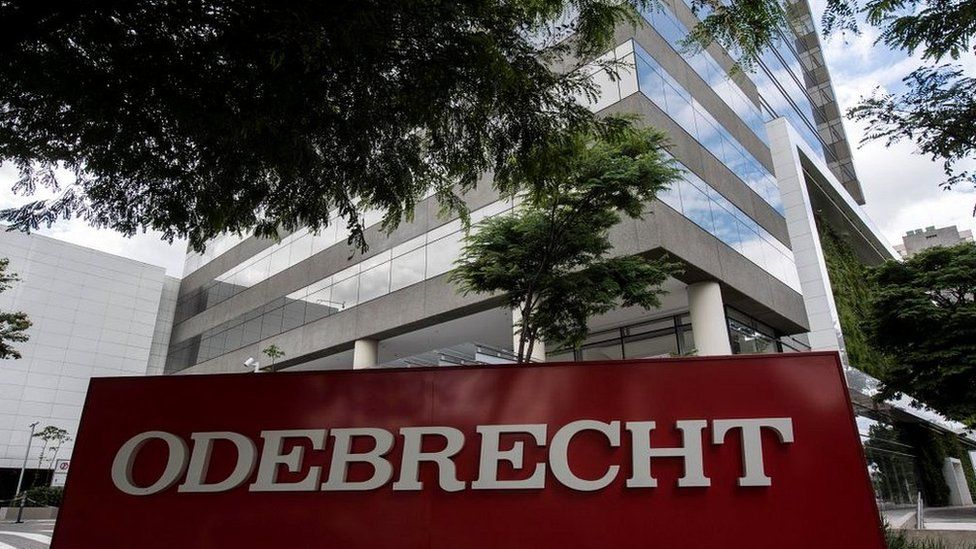Brazil's Odebrecht corruption scandal explained
- Published

For years, Latin America's construction giant, Odebrecht, built some of the region's most crucial infrastructure projects.
But then it became well-known for another superlative: its involvement in one of the biggest corruption cases in history.
In 2016, the Brazilian-based group signed what has been described as the world's largest leniency deal with US and Swiss authorities, in which it confessed to corruption and paid $2.6bn (£2.1bn) in fines.
Seventy-seven company executives agreed to plea bargains with Brazilian authorities, and their statements to investigators were made public.
Their revelations had strong political and economic repercussions throughout Latin America.
What is Odebrecht and why is it important?
It's not a brand many outside Latin America will recognise, but Grupo Odebrecht is the region's largest construction conglomerate.
It started out as a small family construction group in the 1940s founded by Brazilians of German origin. It grew quickly and at its peak, around 2010, the company had 181,000 employees across 21 countries.
Its focus is on building large projects, such as Caracas' metro, a port in Cuba and much of the infrastructure used by Brazil in the 2014 World Cup, including some of the stadiums.
The company is also one of the biggest donors to politicians in Brazil.
What has the company done that is illegal?
Odebrecht is one of the firms that have been caught in Operacao Lava Jato, Brazil's corruption probe into the state oil giant Petrobras. Dozens of companies acknowledged paying bribes to politicians and officials in exchange for contracts with Petrobras.
In June 2015, the group's chief executive, Marcelo Odebrecht, the grandson of its founder, was arrested. Since then, he and dozens of other company executives have been jailed.
In 2016, all of them signed deals with Brazilian investigators, agreeing to confess to crimes and to identify corrupt officials in exchange for shorter prison sentences.
Odebrecht executives have confessed to paying bribes in exchange for contracts not only in Brazil, but in various parts of the world. An international taskforce of investigators is looking into bribery in 10 countries, including Argentina, Colombia, Ecuador, Peru and Venezuela.
In December 2016, Odebrecht signed a leniency deal with authorities in the US and Switzerland, agreeing to pay $2.6bn in fines for its past mistakes - the largest sum of its kind in the world.
The company also tried to settle cases with other governments so that it would be allowed to tender for future major infrastructure projects.
What have Odebrecht executives confessed to?
The most explosive statements came from the former boss, Marcelo Odebrecht, who said that part of the $48m he donated to Dilma Rousseff and Michel Temer's campaign in the 2014 Brazilian presidential election was illegal.
Outside Brazil, revelations made by Odebrecht executive Jorge Barata prompted investigators in Peru to issue an arrest warrant against former President Alejandro Toledo, who is currently considered a fugitive.
All those mentioned in the statements have strongly denied any wrongdoing, and have accused Odebrecht executives of lying.
Are these confessions reliable?
Not always. It is hard for investigators to determine whether those arrested are actually confessing to real crimes, or whether they are telling a story that prosecutors want to hear in exchange for shorter prison sentences.
Plea bargains can be very rewarding for those who sign them. Some of the Petrobras executives who signed such deals in 2014 are now out of prison and serving their sentences at homes, instead of spending years in jail.
On the other hand, plea bargains have been instrumental in bringing to justice powerful people who would otherwise never have been caught.
- Published20 February 2017
- Published12 February 2017
- Published8 February 2017
- Published21 December 2016